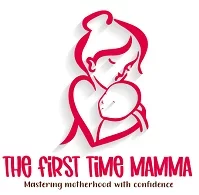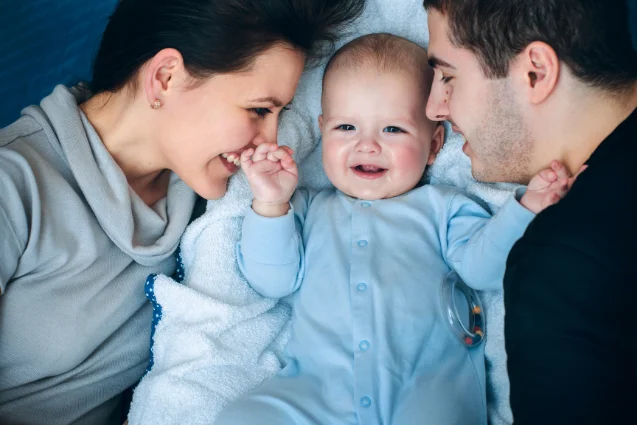Your baby can differentiate between your face and other people’s faces from an early age. Their tender sense organs are vital in helping them achieve this feat. When do babies start preferring mom? Your baby will begin preferring you from around 2 to 4 months of age. At that age, they’ll prefer you because they can tell when you’re nearby with your smell and the sound of your voice.
Hey! By the way… any links on this page that lead to products on Amazon are affiliate links and I earn a commission if you make a purchase. Thanks in advance – I really appreciate it! .
They’ll also be able to see your face and recognize it since they’ve been gazing at it during breastfeeding. Your baby will prefer you to others because they know you as the person who has been caring for them.
Do babies prefer mom or dad?
Babies love to be around their dads as much as they love to be around their moms. Being the closest people to them, they know there’s something special about both of you. But do babies prefer mom to dad? The answer is yes. A unique bond forms between you and your baby during breastfeeding.
Aside from being in your womb for nine months, breastfeeding is the next most potent bond agent between you and your baby. Though dads can be very helpful in taking care of babies and going to extra lengths to play with them, they’re most likely to prefer mom over dad because of the bond that exists via breastfeeding.
When do babies start preferring dad?
Babies will quickly bond with a dad who is present in their lives. Within the first few months, they will connect with their dads as they share time playing and lounging. It’s even easier when dad offers to help care for the baby and involves themselves with diaper changes, bottle feeding, and bathing the baby.
Can babies get confused about who their mom is?
Babies can’t be confused about who their mom is. When do babies start preferring mom? Babies begin bonding with their moms when they’re in the womb. They start to familiarize themselves with their mom’s voice from that time.
After birth, the period of breastfeeding makes them more familiar with who their mom is. They also spend quite a while looking at their mom’s face at each feeding time. They spend time with their mom during naps, baths, and diaper changes, which allows them to get used to her smell and the sound of her voice.
When babies find themselves in the arms of other individuals, their developing senses of smell, sight, and hearing lets them correctly decipher if it’s their moms holding them.
When do babies get attached to their parents?
It’s no rocket science that humans unconsciously get attached to their care providers. The same is true for babies. When do babies start preferring mom and dad? Babies get attracted to their parents from around the second month after birth.
Since parents are responsible for providing them with care and nurture, they naturally get attracted to them. They also pick up the sound of their voice from an early age. Babies feel loved when being fed. They love to gaze at mom and dad’s faces while feeding. They love to hear their parents sing and play with them often. They find it divine to be soothed to sleep by dad’s or mom’s lullabies.
Signs you are not bonding with your baby?
Your baby should bond with you naturally as a new mom. However, you’ll know you’re not bonding effectively with your baby if you notice the following signs:
- Lack of affection towards you: If your baby doesn’t warm up to you when you hold or carry them, they’re not bonding with you. Your baby should feel cozy in your arms and be happy to be held by you. They should also be cheerful when you sing or play with them.
- Not turning to you for respite: Your baby should unconsciously reach out for you when distressed. That happens when they’re hungry, sleepy, need a bath or diaper change, or are upset. If you should attempt to hold them in such situations and they’re not willing to be held by you, then it’s obvious your baby is not bonding with you.
- Not smiling back at you: If your baby doesn’t return your smiles, you should be concerned as it’s a clear sign that they’re not bonding well with you.
- Refusing to be fed by you: If your baby hates to be fed by you either at the breast or through the bottle, it shows there’s no bonding between you two because feeding times are among the easiest ways your baby can bond with you.
Conclusion
As a new mom, your baby should bond faster with you than anyone else. When do babies start preferring mom? As soon as you begin spending adequate time caring for your newborn. Every minute you spend with your baby counts. Give your little bundle of joy the opportunity to get used to your voice, face, and smell, and you’ll be happy to get rewarded with lovely smiles and chuckles from your baby.


